Are you gearing up to navigate the world of negotiations but unsure how to grant your agent the authority they need? An agent negotiation authorization letter is your best friend in this scenario, ensuring that your chosen representative can act on your behalf with confidence and clarity. This essential document not only formalizes the relationship between you and your agent but also sets clear expectations for the negotiation process. Let's dive deeper into how to craft the perfect letter for this purpose and empower your negotiations!
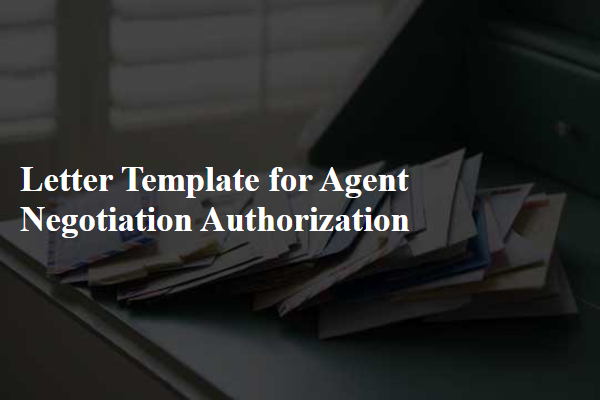
Clear Identification of Parties
In a formal agent negotiation authorization document, clear identification of parties is crucial for establishing responsibilities and legal standing. The parties involved typically include the principal, who is the individual or entity granting authority, and the agent, who acts on behalf of the principal. For example, the principal may be a corporation, such as Tech Innovations Inc., located at 1234 Silicon Valley Road, San Jose, California, while the agent could be a licensed real estate broker named John Smith, operating under Realty Experts LLC, based at 5678 Market Street, San Francisco, California. Accurate legal names and addresses facilitate recognition and enforceability, ensuring transparency in the negotiation process. Additionally, including details like contact information, business identification numbers, and relevant dates reinforces clarity and helps prevent disputes.
Scope of Authorization
The agent negotiation authorization grants representatives the authority to engage in discussions on behalf of the principal, establishing terms for agreements in various contexts such as real estate transactions, mergers, and contract negotiations. This authorization encompasses activities including the negotiation of prices, delivery timelines, and fulfillment conditions, specifically designed to secure beneficial outcomes for the principal. Precise identification of the scope includes the parameters set on negotiation tactics, limitations on concessions, and the requirement for prior approval on significant decisions. The authorization should detail specific timeframes and applicable jurisdictions, more so if the negotiations involve international laws or multiple locations. This ensures clarity and enforceability, while protecting the interests of all parties involved in the negotiation process.
Effective Date and Duration
Negotiation authorization should clearly define the effective date and duration of the agreement. The effective date marks the start of the negotiation authority, ensuring all parties are aware of when the authorization becomes active. This date is crucial in legal documents, often specified as the day following the signing or a predetermined date. Duration indicates the time frame during which the agent can negotiate on behalf of the principal, which can range from specific periods like 30 days to more extended terms of up to one year. Including clauses for renewal or termination conditions can provide flexibility and clarity throughout the course of negotiations.
Agent's Responsibilities and Limitations
Agent negotiation authorization mandates specific responsibilities and limitations for appointed real estate agents. Agents, such as licensed professionals in the U.S., are tasked with representing clients during property transactions, negotiation processes, and securing favorable terms. Responsibilities include conducting market analysis, facilitating communication between buyers and sellers, and maintaining confidentiality in all dealings. Limitations may include adhering strictly to a defined budget, abiding by legal regulations set forth by state real estate commissions, and refraining from making decisions beyond their marketing capacity, such as signing contracts without explicit client permission. Understanding these parameters ensures clients' interests are safeguarded in potentially complex negotiations.
Signature and Contact Information
When engaging in agent negotiation, authorization requires precise documentation. Essential elements include particularly the agent's name, representing the individual or agency to conduct negotiations, followed by clear contact information such as a physical address, email, and phone number for reliable communication. Additionally, the principal's signature, ideally in blue ink (to differentiate from photocopies), certifies authenticity. Include the date of signing for a clear timeline. Contextually, a well-structured authorization enhances trust and efficiency, mitigating potential disputes in professional real estate dealings or contractual agreements. Clear terms are crucial to delineate the scope of authority granted to the agent.
Letter Template For Agent Negotiation Authorization Samples
Letter template of agent negotiation authorization for real estate transactions.
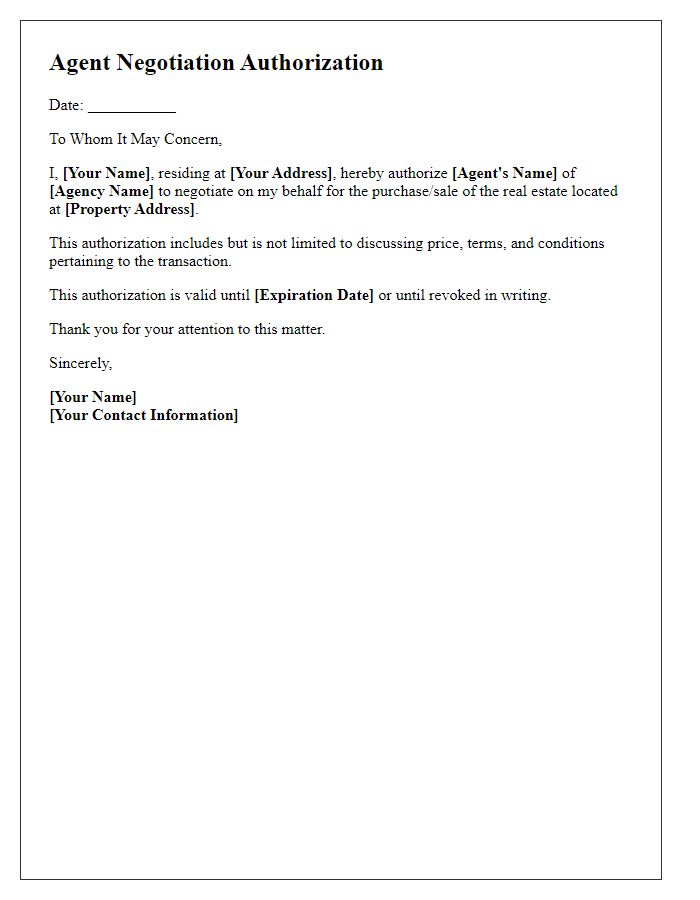
Letter template of agent negotiation authorization for employment contracts.
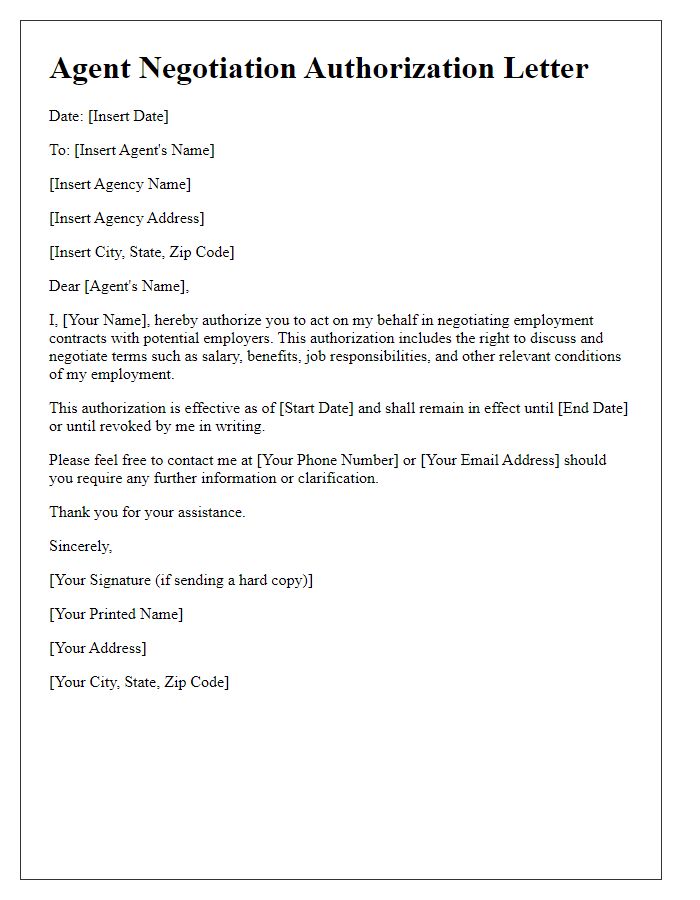
Letter template of agent negotiation authorization for intellectual property agreements.
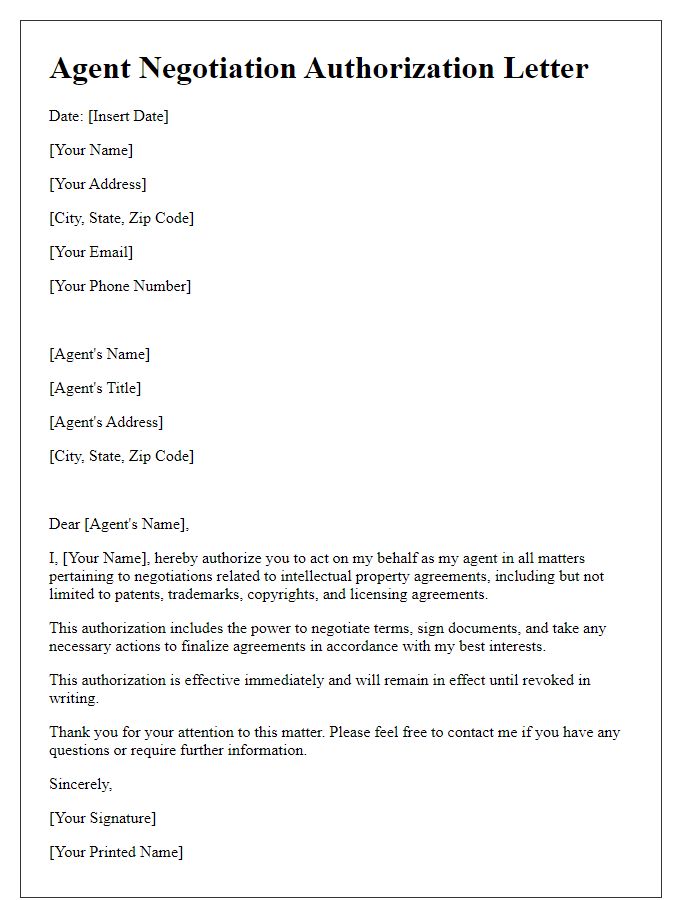
Letter template of agent negotiation authorization for lease agreements.
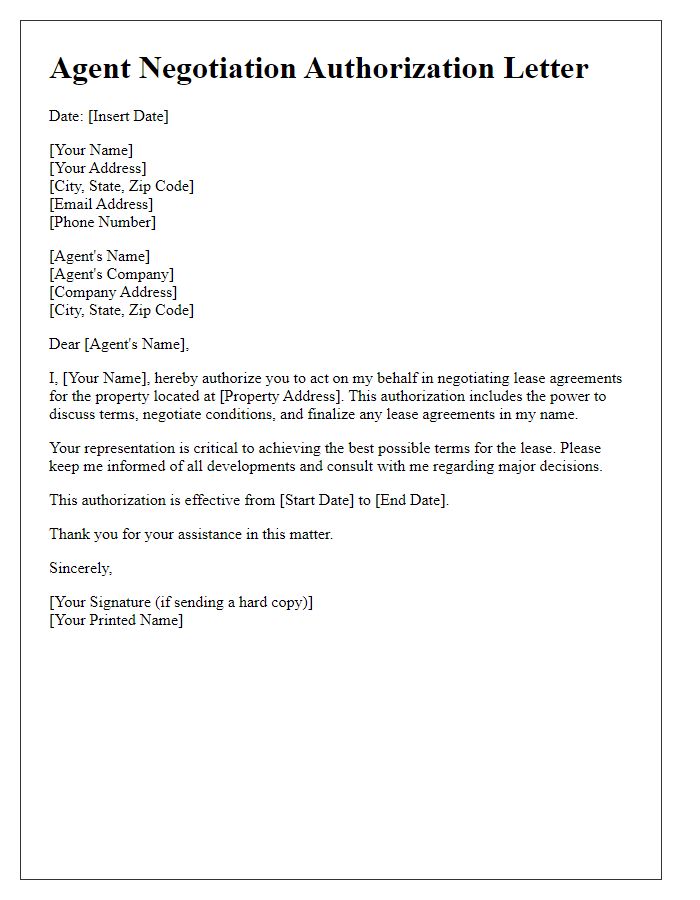
Letter template of agent negotiation authorization for mediation purposes.
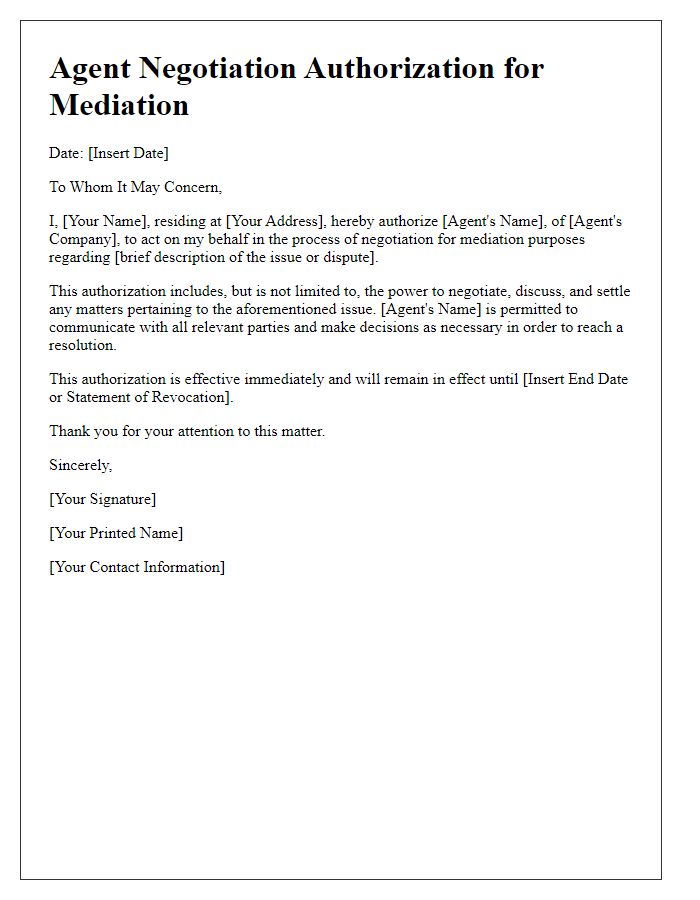
Letter template of agent negotiation authorization for franchise agreements.
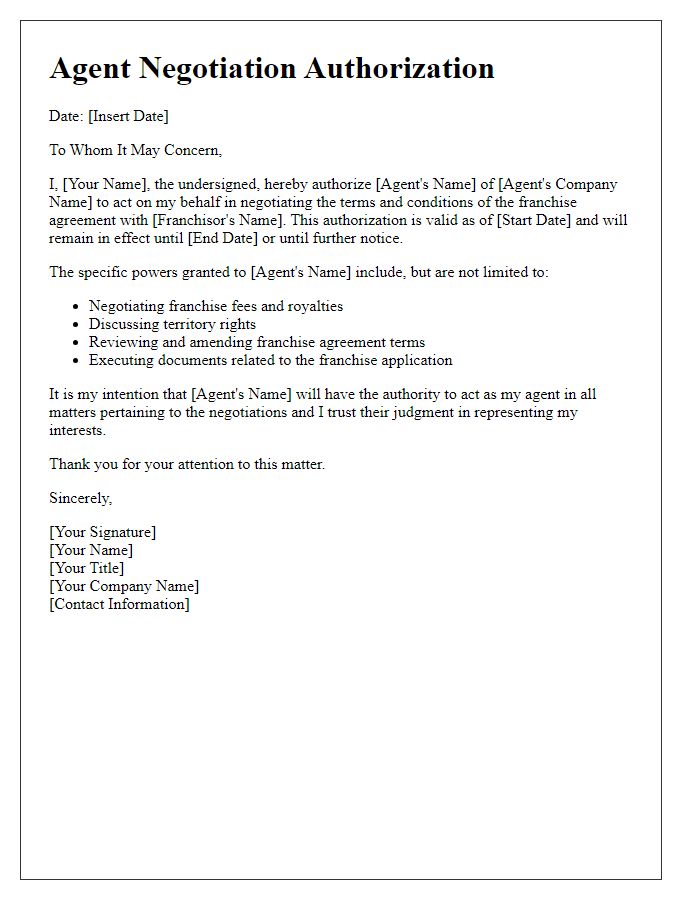
Letter template of agent negotiation authorization for investment deals.
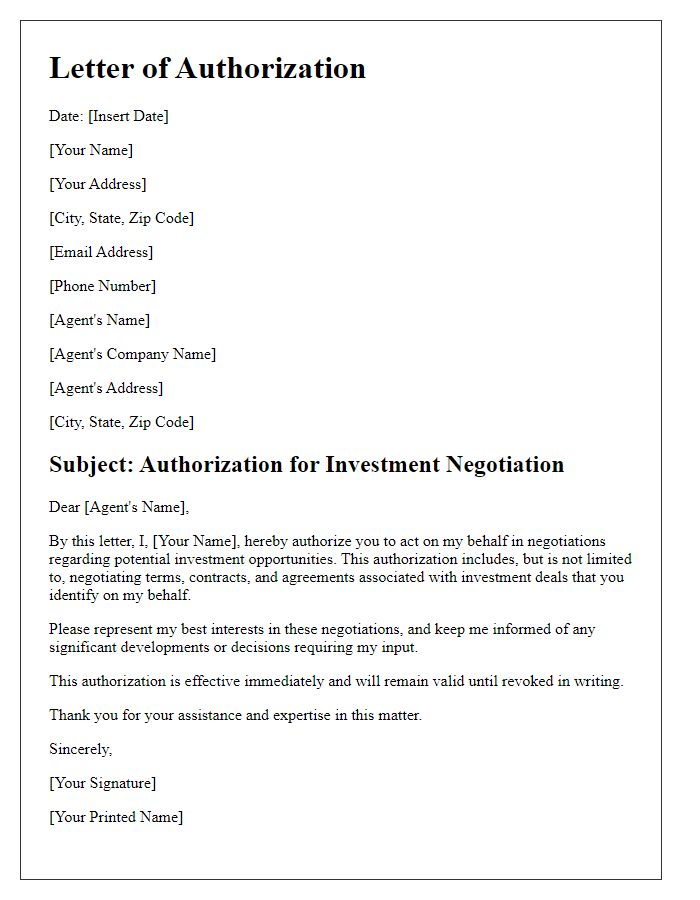
Letter template of agent negotiation authorization for service contracts.
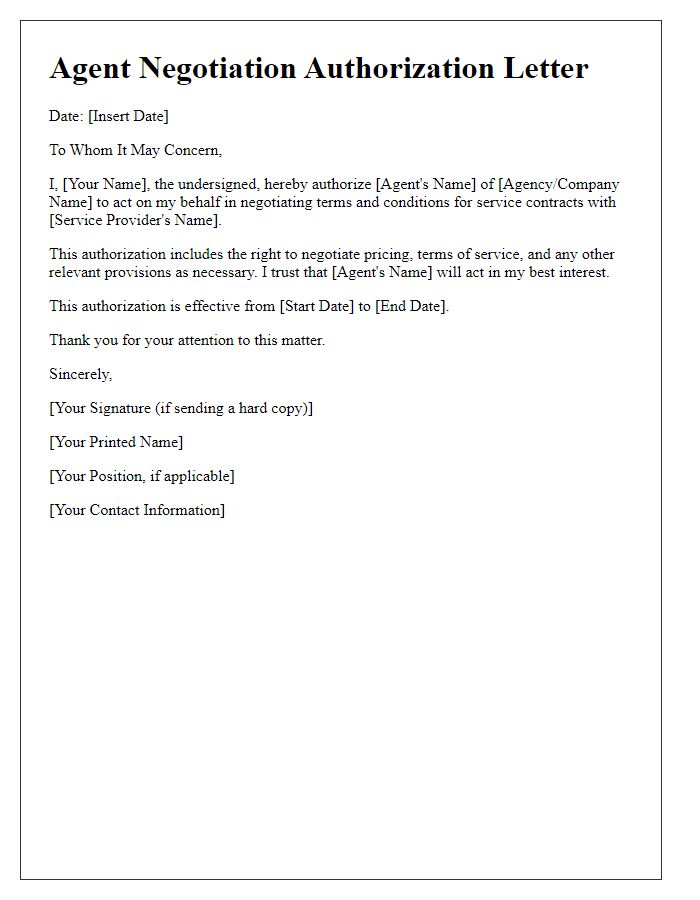

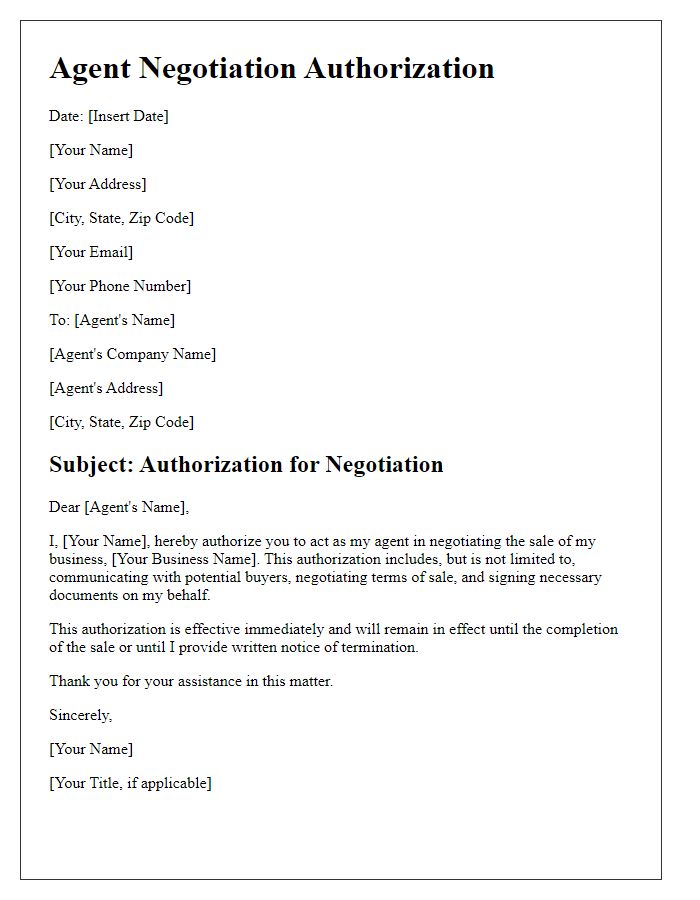
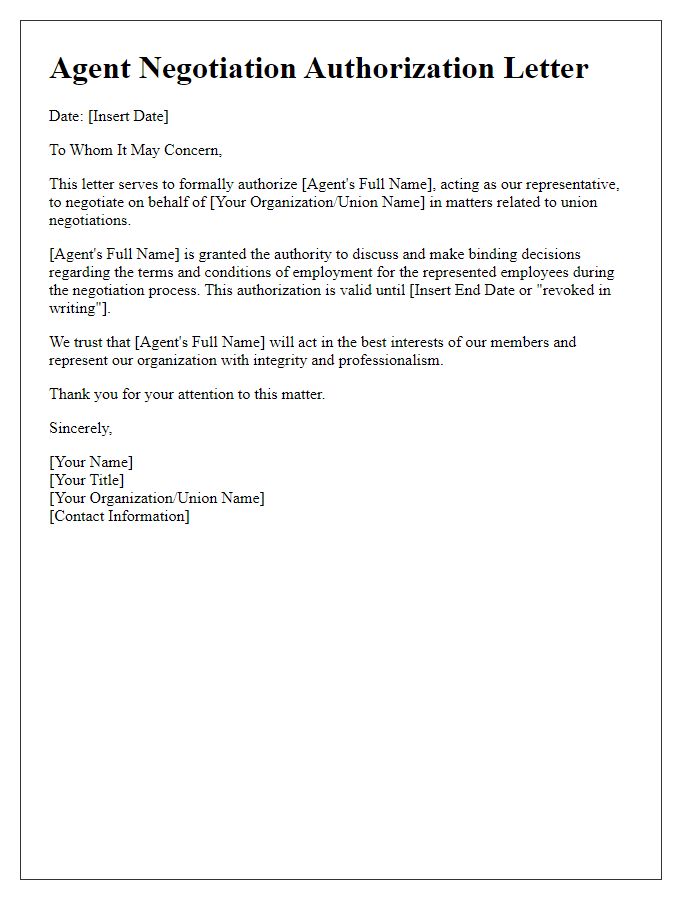


Comments